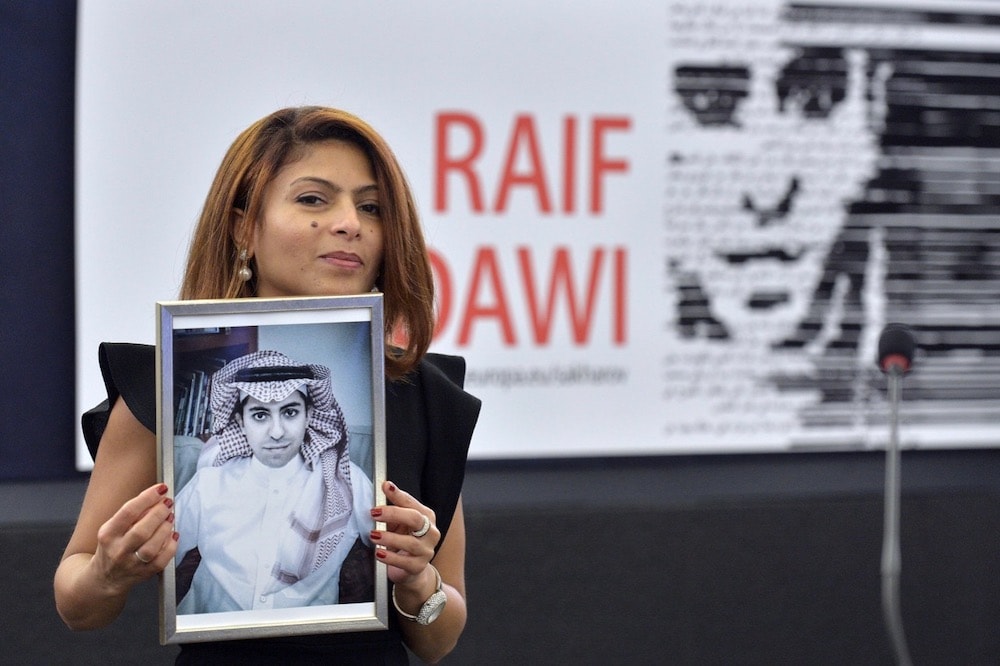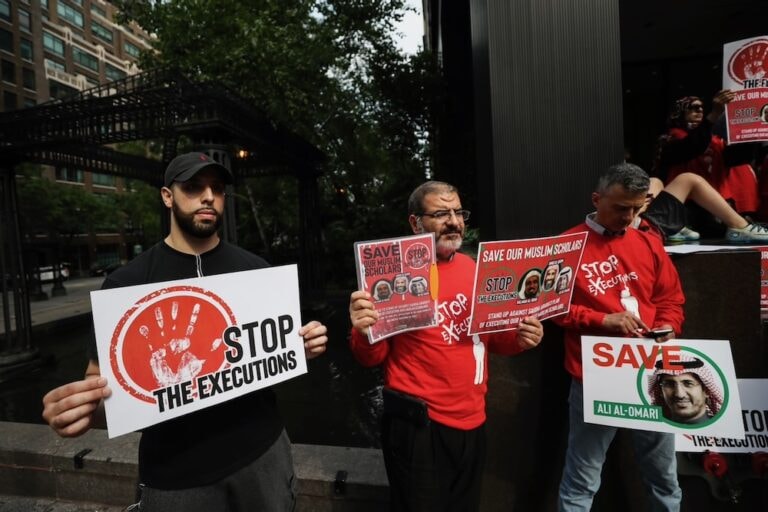Badawi remains banned from leaving Saudi Arabia for 10 years and expressing his opinions online.
This statement was originally published on rsf.org on 10 March 2023.
Saudi blogger Raif Badawi was released exactly a year ago, on 11 March 2022, after 10 years in prison, but he is still not permitted to travel or express himself freely. Reporters Without Borders (RSF) calls on the Saudi authorities to immediately lift all restrictions preventing him from reuniting with his family in Canada and from ending his ordeal.
Now aged 39, Saudi Liberal Network blog co-founder Raif Badawi, has served his 10-year prison sentence and received 50 lashes, on charges of “insulting Islam,” but he was also sentenced to a 10-year ban on foreign travel following his release. He cannot leave Saudi Arabia for another nine years, although his family now lives in Canada. He also cannot express his opinions because he is banned from posting online, using social media and communicating with the news media.
“Raif Badawi is still not free, he is still a prisoner in his own country. We call on the Saudi authorities to immediately lift the restrictions placed on him so that he can join his family in Canada and recover all of his freedoms. Blogging is not a crime! This relentless punishment needs to end.”
Jonathan Dagher, Head of the Middle East desk at Reporters Without Borders
Badawi’s wife, Ensaf Haidar, described his complicated daily life to RSF when reached by phone. He has resumed a semblance of normal life since his release from prison a year ago, going out within the confines of his country and spending time with friends. But he still has not been able to see his wife and three children, who are living under political asylum in Canada. That means he has not seen them for nearly 12 years. “Waiting 12 years is tough, and now we’re being asked to wait another nine,” she said. “The children have grown up without their father; that’s hard.”
In recent months, the Saudi court that convicted Badawi has been asking him to pay the fine of 1 million riyals (250,000 euros) that was part of his sentence. He does not have the money and, furthermore, his financial situation is precarious because, as his wife points out, he cannot work. “He doesn’t admit it, but I can tell he is tired,” she said. “He is still in prison, the only difference is that he can now move around the country that is imprisoning him.”
Similar punitive measures in recent years against journalists and bloggers, both those in Saudi Arabia and those in exile, have completely erased the country’s independent media landscape. With 25 journalists and media workers currently in prison, the Saudi kingdom is the world’s sixth biggest jailer of journalists and the third biggest in the Middle East – after Iran and Syria.



